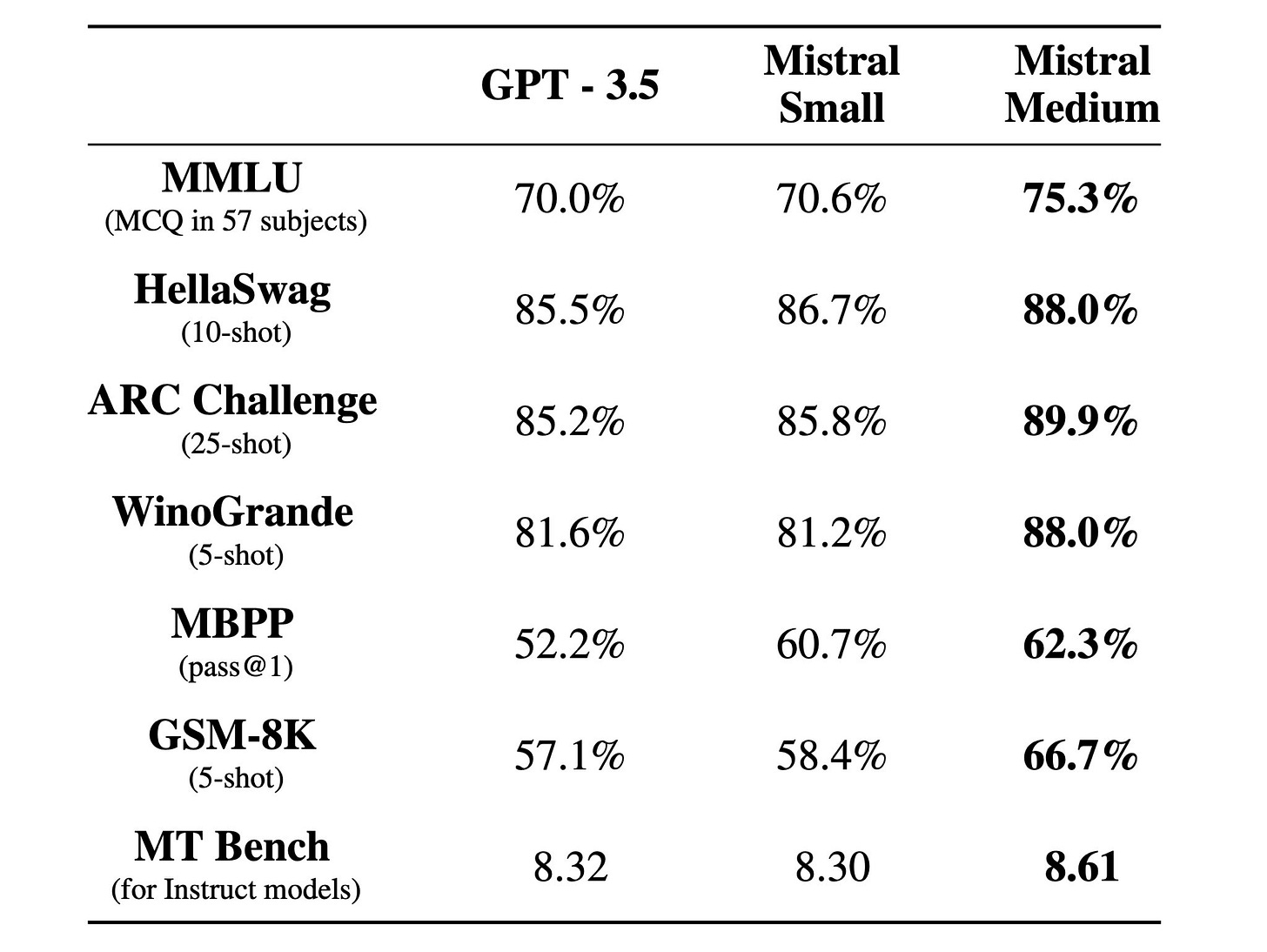Five Predictions for AI in 2024
Expectations for what is likely to be another banner year in AI
Thanks to our now 1.7K+ subscribers! We are making a big push for new subscribers as we approach the end of the year, so please subscribe and share with friends, family, colleagues, or anyone you think would enjoy staying current on the latest trends in AI :)
Perhaps no end-of-year tradition is more frequent (or annoying, depending on your perspective) in the tech world than making predictions for the new year. With the rapid pace of development in AI, where it is difficult to forecast what will happen in a month let alone a year, prognostication can feel a bit like WarGames, where the “only winning move is not to play.” But like any good armchair quarterback armed with little more than “strong opinions weakly held” and the rigor of gut feeling, playing the game is fun, and thus we offer our own predictions for what we expect to happen in the world of AI in 2024.
We’re excited to look back in twelve months and see if we surpassed this year’s 3/5 score!
1) Open Source Models Eclipse Closed Source
Open-source models stepped into the spotlight in a major way this year, but we expect open-source to soar to even greater heights in 2024. In 2023, the introduction of models like Llama-2, Mistral AI, Falcon 180B, EleutherAI, among others, marked a significant entry into the public domain, garnering substantial attention. These open-source models have achieved comparable, if not superior, performance levels compared with closed-source models. One key reason behind their success is the substantial investment in research and technological advancements. Notably, major tech entities like Meta (FAIR) boast extensive research divisions backed by hundreds of millions of dollars in capital, dedicated to crafting top-tier open-source models. Several other prominent research organizations have also secured substantial funding, solely committed to democratizing the progression of these models.
We believe large open-source models will proliferate through two primary channels:
Small, Research-oriented Organizations & Startups: (e.g., EleutherAI, Mistral)
Big Tech Companies: (e.g., Meta (Llama-2), Salesforce (XGen-7B))
We predict that more open-source models will be released in 2024, and we are especially looking at large tech companies to be one of the major contributors. Some examples of this could include companies like Tesla, Uber and Lyft (historically both big contributors to open-source projects), and even Snowflake. We would not be surprised if some of these models spun out into companies and received large funding rounds.
Open-source models have many benefits including enhanced data and privacy, cost savings and reduction in vendor dependence, faster iteration cycles, and customization. At the same time, they also require more technical understanding than leveraging OpenAI APIs. See here for our post on open vs. closed models.
2) Apple Awakens (in AI)
Nearly all of “BigTech” have been moving quickly in AI this year. Microsoft has continued to lead the pack through its partnership with OpenAI, integrating AI into everything from GitHub Copilot (now reaching more than 1M developers) to Azure AI Studio. Amazon recently announced several new AI-first products at its flagship re:Invent conference, including Amazon Q and Titan text-to-image models. And just last week, Google released a demo video of its “largest and most capable AI model” Gemini (though it faced a good deal of controversy over how capable the demo truly was).
One name has been notably absent from the list: Apple.
Despite a long history of incorporating machine learning into its products (like Siri and FaceID), Apple was caught flat-footed in the generative AI explosion over the past year and has yet to make any splashy announcements rivaling its BigTech peers. However, we believe 2024 will be the year that the world’s largest company by market cap “awakens” in AI.
Back in September, it was reported that Apple was investing “millions of dollars per day” into training a new LLM known internally as Ajax GPT. While the model was created for internal use, perhaps next year we could see Apple making Ajax (or related models) more public, or incorporating generative AI capabilities across its apps (e.g. XCode, Apple Music) and devices (e.g. Mac, Vision Pro). And while this was more machine learning than AI, just last week Apple released MLX - an “efficient machine learning framework specifically designed for Apple silicon.”
Just take a look at the 300+ AI-related open roles on Apple’s careers site to sense check their ambitions in the space :)
3) Multimodality Becomes The Norm
This year, OpenAI announced many new multi-modal features including speech-to-text, image-to-text, and multi-language translations. As they described it, ChatGPT can “now see, hear, and speak”. In 2023, we just started to see the power and capability of these modalities, but in 2024 we believe most models will offer multi-modal features.
In 2024, we might witness a world where individuals can seamlessly upload images of trendy jackets they spot on influencers directly into the Nordstrom shopping app, instantly generating 5-10 similar options available for purchase. Or, imagine browsing at West Elm and deeming a couch too pricey; you could turn to ChatGPT, requesting assistance in discovering 5 more affordable alternatives. Or, while traveling in Japan, you might experience real-time translation services facilitating instantaneous communication from English-Japanese-English, removing language barriers and latency issues.
That said, we acknowledge the persisting challenges in bridging the gap between real-world human-computer interaction and the journey towards achieving artificial general intelligence. Consequently, our prediction for this year revolves around a heightened focus on refining the conversion of collected data into formats comprehensible by LLMs. We anticipate an emergence of enhanced tools specifically designed to convert data into more universally understandable formats, alongside innovations that enhance LLMs' ability to interpret various data types. In addition to conventional modalities like speech, text, video, and language, we anticipate an increased relevance of additional modalities such as sensor data, broadening the scope of information processing and understanding.
4) Agent to Agent Interactions Increase
This year, we saw many open-source projects take off like wildfire. Projects like BabyAGI (18.3K stars on GitHub) was a prime example of AI-powered task agent systems. These agent systems are (in theory) fully autonomous task management systems that can create, track, and prioritize all your projects by leveraging AI. Each of these systems are personalized specifically to you.
In 2023, the concept of agents began gaining traction, yet its widespread execution remains relatively nascent. However, we believe in 2024 there will be a surge in the emergence of these applications, spanning both consumer and enterprise domains.
Consider this scenario: envision a world where every individual possesses their own personal agent or multiple agents tailored for distinct purposes. For instance, you might have an "executive assistant" agent for professional tasks, alongside a "travel agent," "business coach agent," and even a "sports coach agent," each catering to different facets of your life. These diverse agents will interact not only with individuals but also with businesses, which will have their own versions of agents. This interaction between various agents and businesses will be geared toward offering highly personalized experiences, tailored to the specific needs and preferences of each individual.
Companies like Gather, MultiOn, and Stochastic are beginning to offer some of these agent-to-agent experiences - will there be more in 2024? We think so!
5) The ROI Question Becomes Real
After ChatGPT exploded onto the scene one year ago, within months we were hearing from CEOs across both large and small companies how best to incorporate Generative AI into their organizations. This conversation centered both around how AI could empower their workforce through new tools, as well as how to boost their own products with AI-enhanced capabilities. We quickly saw numerous reports detailing the billions of dollars spent on GenAI and the trillions in market size to be created.
As our partner Matt McIlwain wrote recently, the same CEOs who asked last spring “what is our GenAI strategy” will be asking a very different question this coming summer - “what is the return on investment for our GenAI spend?”
Why do we think this shift will occur in 2024? Our sense is that in 2023, executives and management teams were fine spending experimental dollars on new AI products like Jasper, ChatGPT Enterprise, and others. Now that virtually every major enterprise application is being infused with AI (Salesforce, ServiceNow, Microsoft, etc.), C-Suites will have to determine where their budgets should be allocated to maximize returns. And ROI is not just going to be measured in dollars, but time and resource allocation as well.
While we definitely do not expect spend on AI to decrease, we do expect reallocation to occur, with CFOs more sharply focused on where they can get the most bang for their buck in AI.

Conclusion
As we approach the end of perhaps the most exciting year for AI in recent memory, there’s no question in our minds that the pace of innovation is only accelerating. While we agree with the old Yogi Berra adage that "it's tough to make predictions, especially about the future", one thing we can be certain of is 2024 will bring surprises that nobody expected. We’re looking forward to another exciting year, and to looking back in twelve months to see how our forecast held up!
We hope you enjoyed this edition of Aspiring for Intelligence, and we will see you again in two weeks! This is a quickly evolving category, and we welcome any and all feedback around the viewpoints and theses expressed in this newsletter (as well as what you would like us to cover in future writeups). And it goes without saying but if you are building the next great intelligent application and want to chat, drop us a line!









Understatement inbound: “perhaps the most exciting year for AI in recent memory“ : )